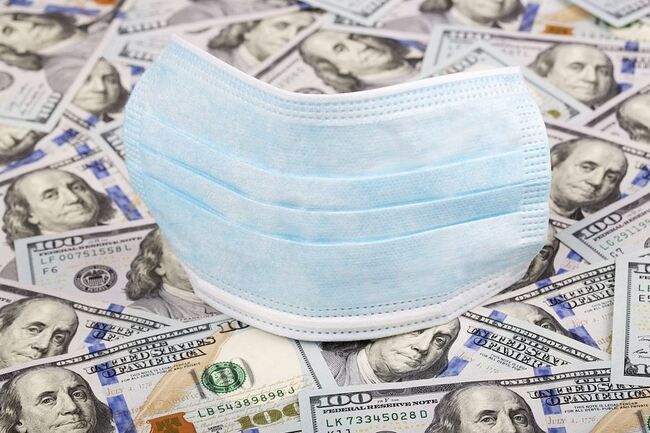Nursing Homes are Taking Residents’ Stimulus Checks
2020 has been a difficult year for most people. For many, their hopes to stay afloat hinged on Congress’ promised stimulus checks, which were first distributed in the spring. The average person received more than $1,000 in the first stimulus—if they did not reside in a nursing home. Unfortunately, for many residents of long-term care facilities across the country, that stimulus check never appeared.
Instead, for many nursing home residents, their stimulus money was poached by the nursing homes that pledged to care for them.
Elderly citizens have faced an unprecedented struggle to claim the stimulus checks that are rightfully theirs, especially if they were enrolled in the Medicaid program. Many residents were asked to sign their stimulus checks over to the assisted living facilities that they relied on and trusted. This deception was encouraged by a number of nursing home administrations, who offered only veiled information about why the homes needed the checks. Even worse, many of these vulnerable residents are confused or have dementia, and were unable to understand the magnitude of forfeiting a government check that was intended for them.
As a result, thousands of elderly residents’ checks were claimed by their facilities under the pretense that the money was due for services rendered, or that since the resident lived in the home, the check no longer belonged to them. This is flat out wrong.
Why Nursing Homes are Targeting their own Residents’ Checks
The concept being touted is this: that nursing homes typically claim a portion of a resident’s income as part of their fees. If a resident is on Medicaid, the nursing home will examine the resources an individual possesses in order to determine how much is owed by the resident. Thus, nursing homes make the claim that those on Medicaid have received additional income via the stimulus checks, and that income can be used to defray the costs of care.
However, the CARES Act stipulates that economic impact payments are categorized as tax credits, not income. Because of this clarification, stimulus checks are not income, and so they cannot be seized.
Nursing Homes Taking Resident Stimulus Money is Tantamount to Theft
Elder justice coordinator Lois C. Greisman, working for the Federal Trade Commission, clarified that this behavior by nursing homes is illegal, and that anyone who encounters a long-term care facility asking for residents’ stimulus checks should immediately reach out to both the FTC and the state attorney general. Greisman also noted that a stimulus check belongs to the individual to whom it is assigned—not the nursing home. It is the resident’s money to keep, and no facility is permitted to ask a resident to sign it over to the nursing home or to take it from the individual.
This issue, formerly kept in confidence among nursing home conglomerates, has surged to public view in light of another upcoming round of stimulus checks at the end of 2020. Many individuals will be receiving an additional $600 at the beginning of 2021, and with no action taken to directly prevent nursing homes from once again poaching residents’ much needed stimulus money, the FTC is speaking out to inform families of the practice.
Was a Family Member’s Stimulus Check Taken by a Nursing Home?
If you believe that someone has not received their stimulus check because a nursing home or assisted living facility claimed it, reach out to a legal professional. Our nursing home whistleblower attorneys are on the front lines of battling unscrupulous nursing home corporations and their predatory behavior. If a nursing home company is attempting to steal resident checks, take action immediately. Be sure to get in touch with the FTC and your state’s attorney general, who can assist your loved one with getting that money back.
Report nursing home fraud by live chatting with us now or calling us at 888-375-9998.




